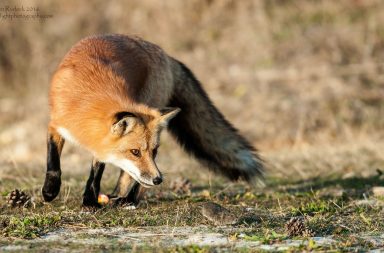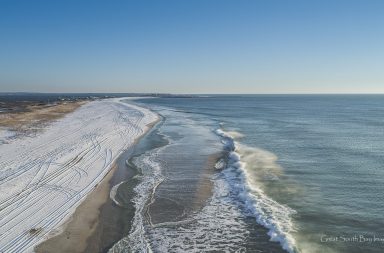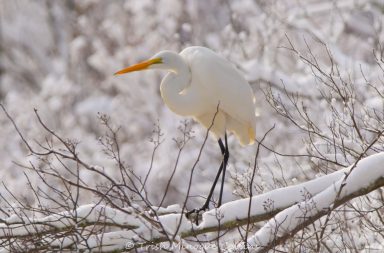Black Skimmer
A rather tern-like bird with slim body and long slender wings, the Black Skimmer is also fascinating with that unusual lower part of the bill sticking out past the upper part. (No other North American bird has this bill configuration.) A handsome bird all black & white except for the red of the feet and the orange of the lower bill. The female is much smaller than the male with a smaller bill.
The reason for the Skimmers’ bill arrangement (lower mandible longer than the upper) is due to their hunting habits; they skim along the top of the water with the lower part of their bill slicing through the water to catch fish & shrimp. When sensing a fish with the lower bill, the upper bill will then snap shut seizing it’s prey. Because they hunt by touch, Black Skimmers are able to hunt at dawn and dusk, and even after dark. They skim the water so fast you wonder why they don’t hit rocks in the water … and unfortunately they do; not terribly often, but skimmers have been seen/found with chipped and/or damaged lower mandibles.
Skimmers are highly social birds, nesting in colonies and forming large flocks when not breeding. They come back to the same nesting site each year, with nests that aren’t much more than a scrape in the sand. Incubation by both parents takes about 21-23 days with 4-5 eggs being laid. When first hatched both upper and lower part of the bill are of equal length but when ready to fledge (in 4 weeks) the lower bill has begun to grow longer.
Mostly coastal birds, you can often see large numbers of Black Skimmers resting on the beach where they lay stretched flat on their stomachs with head and bill flat against the sand. A group of skimmers are collectively known as a “conspiracy”, “embezzlement”, and “scoop” of skimmers.
Black Skimmers nest from Massachusetts & Long Island to Florida and Texas; they spend winters further south. Their populations have been slowly declining due to loss of beach habitat and increased beach traffic. They are listed as endangered in New Jersey and special concern in North Carolina & Florida.
The oldest recorded Black Skimmer was at least 23 years when it was identified by its band in California in 2013.
The photos below and on pages 2 and 3 were contributed by members of the Long Island Wildlife Photography Group on Facebook.

Scott Dere

Jackie Connelly Fornuff

Dianne Harrier

Vicki Jauron

Lelah Cafuoco

Jerry Adamo



